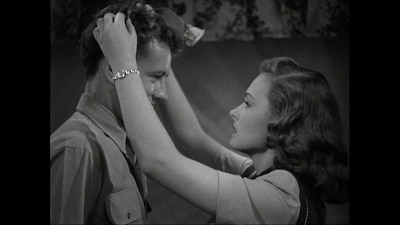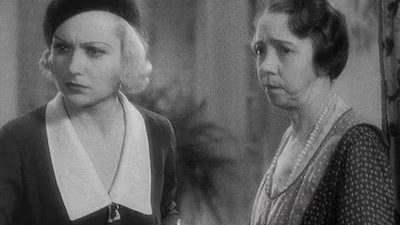Wesley Ruggles

About
Biography
Filmography
Family & Companions
Biography
The brother of comic actor Charles Ruggles, Wesley Ruggles briefly followed in his brother's onscreen footsteps before forging a lengthy career as a director for such features as the Oscar-winning "Cimarron" (1931), "I'm No Angel" (1932) and "Arizona" (1940). He began directing in 1917, overseeing dozens of short comedies and melodramas before hitting his stride with the sprawling Western "Cimarron," which earned him an Oscar nomination for Best Director. Ruggles would direct some fine Hollywood comedies during the 1930s, including "I'm No Angel" with Mae West, and several vehicles for Carole Lombard, including "No Man of Her Own" (1932). Though prolific, Ruggles' directorial efforts rarely evinced any particular style, save for a talent for maintaining the pace in lighthearted efforts. By the 1940s, his career had run aground, with the 1946 British musical comedy "London Town" serving as the costly epitaph for his tenure behind the camera. Upon his death in 1972, Ruggles was largely regarded as a hard-working if unremarkable filmmaker whose vast body of work included several sparkling high points in the comedy genre.
Born June 11, 1889, Wesley Ruggles was the second of two sons born to pharmaceutical salesman Charles Herman Ruggles and his wife, Maria. His older brother, Charles, enjoyed a lengthy career in features and television as a comic supporting player in films like "Bringing Up Baby" (1938). The siblings' early lives were marked by considerable tragedy; relatives raised the boys in San Francisco after the murder of their mother, who had attempted to protect her husband from an armed assailant. While Charles worked briefly for his father's sales company, Wesley attended university in San Francisco before following his brother's lead and delving into acting with various stock companies. In 1914, Ruggles headed for Hollywood, where he landed work as a player with Mack Sennett's Keystone Film Company. The following year, he followed Charlie Chaplin to Essanay Studios, where he appeared in bit and uncredited roles in several of the comedy legend's one-reelers.
By 1917, he had signed to Vitagraph as a director, making his debut in that capacity with "Bobby, Movie Director" (1917). Ruggles' career was briefly interrupted during military service as a camera operator during the final months of World War I, after which he returned to Hollywood to continue his directorial work. Unfortunately, most of Ruggles' early efforts were forgettable comedies and melodramas for a variety of companies, including a slew of shorts for Joseph P. Kennedy's Film Booking Offices of America. He then moved for Universal in 1925 for another steady but unremarkable tenure before signing with RKO in 1931. There, he directed "Cimarron" (1931), an adaptation of the Edna Ferber Western drama that cost the studio $1.5 million to make, which was an astronomical sum, especially during the Great Depression. As a result, the studio was unable to recoup its costs at the box office, but "Cimarron" was an unqualified critical success, as well as an Oscar winner for Best Picture. Ruggles himself was nominated for Best Director, but lost to Norman Taurog's work on "Skippy" (1931). The following year, Ruggles signed with Paramount, which began his most acclaimed period as a filmmaker.
The release of "I'm No Angel" (1932), with Mae West in her quintessential turn as a wisecracking man-eater and Cary Grant as the befuddled object of her desire, minted Ruggles as a gifted comedy director, and preceded a lengthy string of lighthearted features. He directed Carole Lombard in three hit films - "No Man of Her Own" (1932), her only onscreen pairing with future husband Clark Gable; the breezy "Bolero" (1934), with George Raft and famed burlesque dancer Sally Rand; and "True Confession" (1937), with John Barrymore and Fred MacMurray - the latter of whom Ruggles would later collaborate on several features, including the Bing Crosby musical "Sing You Sinners" (1938). In between these assignments, he directed what many regarded as the best "women's picture of the decade, "Valiant is the Word for Carrie" (1936), with Gladys George, who received an Oscar nomination for her turn as a selfless, long-suffering woman raising two children, one of whom was played by Ruggles' then-wife, actress Arline Judge. The Oscar-nominated Western "Arizona" (1940), with Jean Arthur and William Holden, marked a successful return to the genre that helped to boost the director into the spotlight.
The latter picture proved to be Ruggles' last substantive hit. A slew of failed follow-ups, including the Dalton Trumbo-penned comedy "You Belong to Me" (1941), which reunited Henry Fonda and Barbara Stanwyck, helped to bring his career to a halt by the mid-1940s. In 1946, he was brought to London by producer J. Arthur Rank to oversee "London Town" (1946), a splashy, oversized musical comedy that marked England's first foray into Technicolor filmmaking. Produced at considerable expense during a period of rationing in the wake of World War II, the film was a disaster for both Rank and Ruggles, who never directed another feature. He resurfaced briefly in 1962 as producer and writer for the obscure "Out of the Tiger's Mouth," a drama about the hardships faced by two Chinese children. His final screen credit came as associate producer of "The Incredible World of James Bond" (NBC, 1965), a one-hour television special promoting the spy movie franchise and its then-current entry, "Thunderball," (1965). Ruggles died at the age of 72 on Jan. 8, 1972 in Santa Monica, CA.
By Paul Gaita
Filmography
Director (Feature Film)
Cast (Feature Film)
Writer (Feature Film)
Producer (Feature Film)
Production Companies (Feature Film)
Cast (Short)
Life Events
Photo Collections
Videos
Movie Clip












Family
Companions












